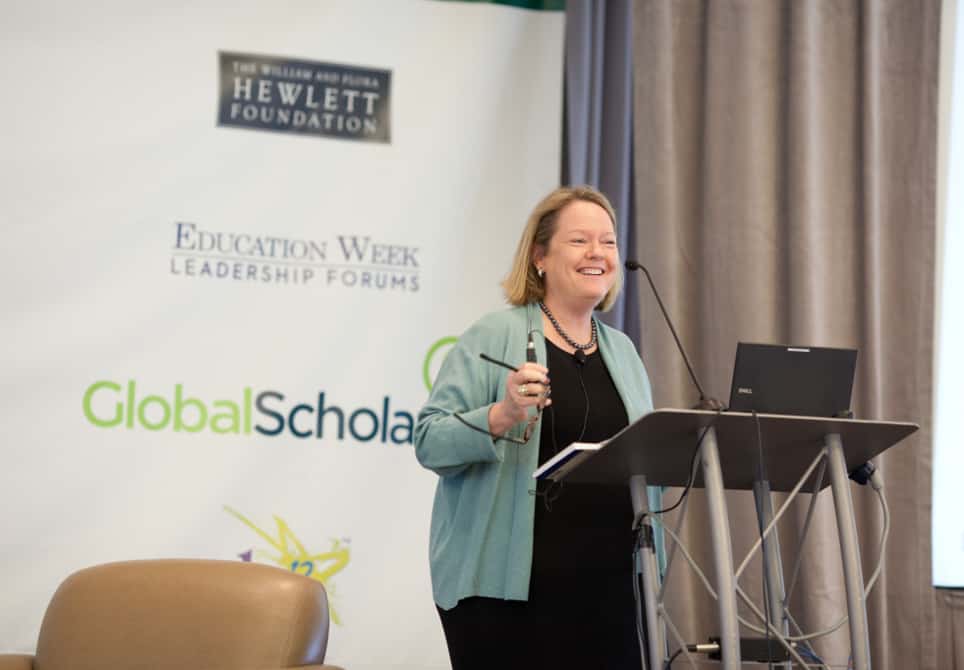EdWeek Chief Reflects on Three Decades of Change in U.S. Education

That philosophy guided Virginia Edwards during a 28 year career at nonprofit Editorial Projects in Education (EPE), the publisher of Education Week.
Recently I had the pleasure of chatting with her for the Getting Smart podcast about the exciting changes she witnessed in the education field during her career, and where she is heading next:
Here are a few highlights from the interesting facts and stories she shared with me:
- Trained as a journalist, Edwards spent 10 years writing for daily newspaper in Louisville, Kentucky, before joining the Education Week staff.
- She’s been president of EPE and publisher of EdWeek for the last 20 years.
- Edwards publishing career matched the standards-based reform: from state standards through NCLB and Race to the Top, from Dick Riley to Arne Duncan as Secretary of Education; the full arch of big federal involvement and investment.
- With a perch in Bethesda, Maryland, Edwards and her crew had a front row seat during all of the major changes and innovations.
- She began her career on a typewriter, but is leaving her career at EdWeek with a legacy of eight e-newsletter, 55 blog and a variety of digital products in an era where “everything is shared and everyone is a publisher.”
- Edwards is excited about the potential of digital learning, but concerned that it is still not equally distributed.
- She finds the movement toward student-centered and project-based learning encouraging: kids driving their own learning.
- Edwards thinks journalists play a key role in improving policy and practice, but “gotcha journalism is not helpful.”
- For a decade, Edwards said, they have viewed EdWeek as digital first. The shift to digital helped the team know what readers consumed and how they engaged with content.
- A few years ago they began charging for online subscriptions. Edwards said the move was critical to sustainability.
- EPE also moved into events, first large scale events, then smaller regional convenings. Edwards said it was a tough low margin business, but part of a diverse business model. On managing potential conflicts Edwards said, “”Sponsorship and the editorial voice do not interact.”
The other big transition of the last few years was covering the business of education: the rise of EdTech and venture investment. For more than a decade, EdWeek published an annual recap of progress in educational technology. Three years ago they added a handful of blogs on EdTech, industry and innovation blogs, including mine.
Editor Michele Givens, a 15 year EdWeek veteran, is taking over as president of EPE for the retiring Edwards.
Edwards established EdWeek as the paper of record for U.S. K-12 education. It not only survived the shift to digital but thrived by updating the business model and diversifying the revenue stream. She helped us all learn and improve by creating the most trusted source on education.
Other podcasts you might enjoy include:
- Superintendents Aim to Redefine Readiness
- Paul Tough on Helping Children Succeed
- An Ambitious Plan to Make the Nation Proud of its Public Schools
Stay in-the-know with all things EdTech and innovations in learning by signing up to receive the weekly Smart Update.








0 Comments
Leave a Comment
Your email address will not be published. All fields are required.